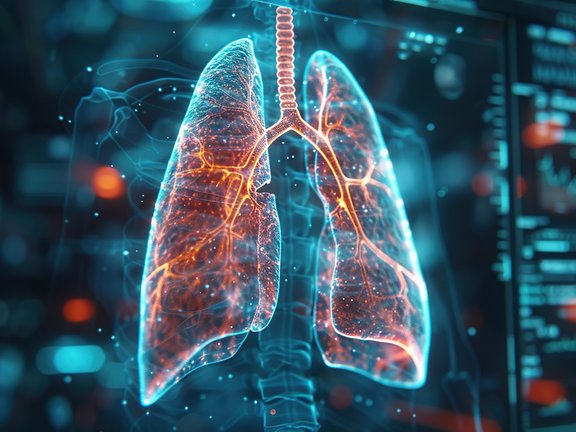The study conducted by Heidelberg University Hospital investigates the use of diffusion-weighted MRI (DWI) to predict early treatment outcomes in patients with advanced lung adenocarcinoma. The researchers analyzed changes in radiomic features derived from ADC (Apparent Diffusion Coefficient) maps in 144 patients who were treated with either tyrosine kinase inhibitors (TKI) or platinum-based chemotherapy (PBC).
The study found that radiomic features, known as delta-radiomics features (DRFs), were able to predict treatment success and progression-free survival (PFS) as early as 14 days after the start of treatment.
These features enabled the distinction between patients with likely better and worse treatment outcomes.
The use of DWI-based radiomics shows promising potential for early decision-making in lung cancer treatment and could allow physicians to adjust therapies more quickly.
This approach offers a non-invasive, radiation-free alternative for early assessment of treatment success in lung cancer.



